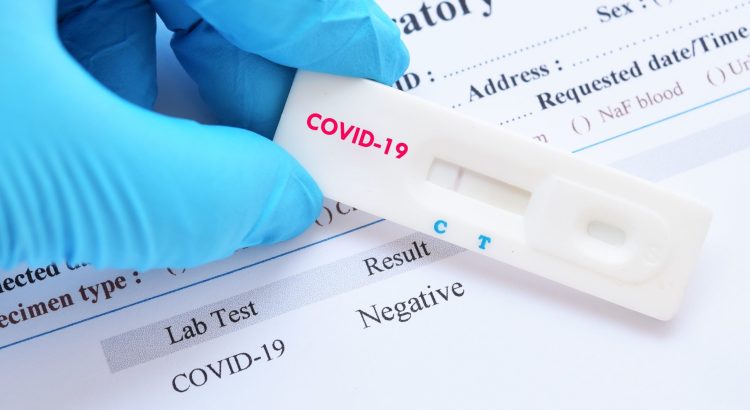

The COVID-19 pandemic has placed and will continue to exert, significant pressure on all companies, big and small. Businesses have seen their sales shrinking exponentially (those which did not have to close) and it is not surprising to hear that many businesses are already in varying degrees of financial distress.
It is true that everyone is more concerned with how and when this pandemic will come to an end, but it is equally important for directors to devise proper business strategies so as to allow for swift and cautious action should their business start showing ‘symptoms’ of financial distress.
Now more than ever, boards have a duty to exercise oversight and to monitor the company’s operational viability, legal compliance and financial performance during this pandemic. They ought to be keen to execute their oversight duty by adopting a reporting and monitoring system sufficient to ensure the directors remain informed about fundamental business issues involving public health, safety, and business performance overall during this scourge.
This article considers directors’ duties and associated liability every board member should be mindful about as they endeavour to navigate their companies through the uncharted waters they currently find themselves in.
It is a basic canon of corporate governance that the powers to manage the affairs and business of the company must be in the hands of the board of directors (centralised management). This principle is enshrined in Article 142 of the Rwandan Companies Act (Law n°17/2018 of 13/04/2018) but comes with several duties aimed at ensuring that directors do not abuse their powers and take self-interested decisions.
All directors’ duties may be relevant to the current situation, but one duty (relating to the company’s solvency) appears to be more pressing during these times.
The directors’ duty in relation to the company’s solvency is prescribed in Article 148 of the Companies Act which provides that a director of a company shall not agree to the company entering into a contract or arrangement or acting in any other manner unless he/she reasonably believes that the act concerned does not involve an unreasonable risk of causing the company to fail the solvency test.
Under the Companies Act, the company would be deemed to have failed to pass the solvency test if it is unable to pay its debts as they become due in the normal course of business (cash-flow or commercial insolvency) or the realizable value of the company’s assets is less than the aggregate of the present value of its liabilities, whether contingent or prospective (balance sheet insolvency).
The same provision further states that a director of a company shall not agree to the company incurring an obligation unless he/she believes, at that time on reasonable grounds, that the company will be able to perform the obligation when required to do so.
It is inevitable that, during these times or in their aftermath, companies will be taking various measures to cushion the firm against financial distress caused by the COVID-19 pandemic including leverage, but directors should be mindful of their duty in relation to the company’s solvency particularly the duty not to agree to the company incurring an obligation unless they reasonably believe that the company will be able to perform such obligation as it falls due.
In terms of liability for directors’ failure to discharge their duty in relation to the company’s solvency, this duty has its corollary concept in insolvency law —wrongful trading— which involves directors making transactions in and out of the business with the knowledge that the company is insolvent.
In case wrongful trading is established, the directors of the company may be personally liable for debts incurred during that period should the company subsequently enter into liquidation. The concept of wrongful trading is not provided for under the laws of Rwanda, but it has gotten wide application in a vast number of countries and one has little trouble asserting that the directors who fail to discharge their duty in relation to the company’s solvency may be liable for wrongful trading should their companies get into liquidation.
The directors may however have a defence against the wrongful trading claims under the business judgment rule which is a presumption that in making a business decision, the directors of a company acted on an informed basis, in good faith and in the honest belief that the action taken was in the best interests of the company.
In this vein, directors would only be liable for wrongful trading if they allowed a company to incur credit at a time when the business was being carried on in such circumstances that it was clear the company would never be able to satisfy its creditors’ claims.
There is nothing to suggest that directors who genuinely believe that the clouds will roll away and the sunshine of prosperity will shine upon them again and disperse the fog of their depression are not entitled to incur credit to help them to get over the bad times.
Considering the directors’ duty in relation the company’s solvency, one can conclude with a simple tip that in their endeavours to mitigate the aftershocks of the COVID-19 pandemic, companies’ directors must ensure that each and every transaction or arrangement undertaken will not cause the company to fail the solvency test, by asking themselves the following seemingly simple question: Is it reasonably unlikely that the company will be able to pay all its debts as they become due?
The above is general information, please consult your legal advisors for tailored advice.
The writer is a corporate commercial and tax lawyer, and senior associate at ENSafrica Rwanda.


